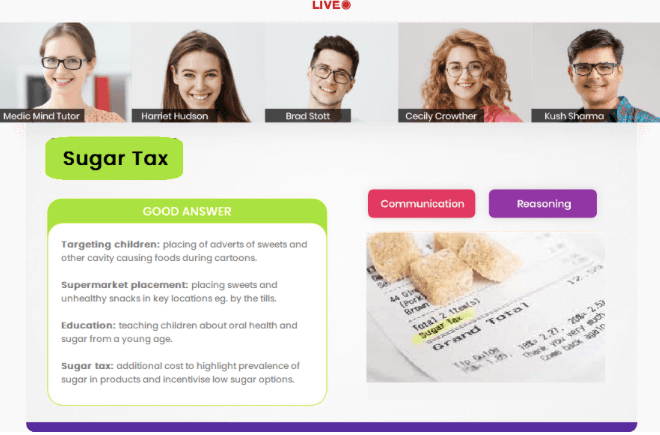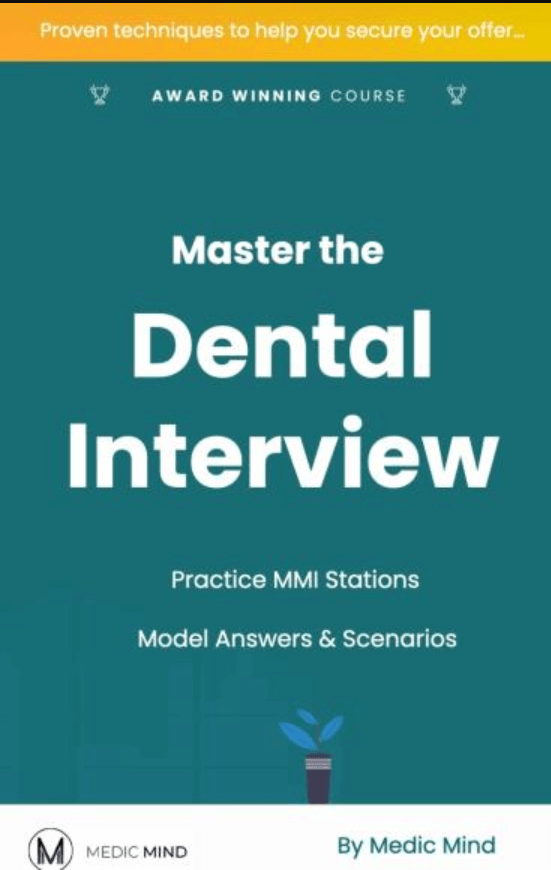Loading...


My Experience studying Dental Hygiene and Therapy

My name is Harriet; I am currently a first-year student studying Dental Hygiene and Therapy at London’s King’s College University. I am on my way to completing my first year of university. Here, I will be talking about my direct experience studying Dental Hygiene and Therapy to give you an insight into what it is like as a student.
For the students who are just beginning their journey through Dental Hygiene and Therapy school, I would like to share some words of wisdom with you. Here are some things I would have told myself before coming to university.
The Dental Hygiene and Therapy course is challenging and vigorous. During my first week studying at KCL, I spent a lot of time at the library or in my accommodation watching lectures and making notes that I could look back over. I was overwhelmed and did not know where to start. I soon learned that I needed to use my time wisely and be patient with the work I was doing.

In the first week of university, these are the things I would recommend:
- Get whiteboards to write important things down
- Make to-do lists
- Get a yearly planner
- Find out exams and assessment due dates and add them to your planner
- Find a sport or activity to join, for example, running or badminton
- Always plan ahead. Planning a week at a time is a good way to work
- Get organised and try not to procrastinate
- Take one lecture at a time
- Do not panic
- Take breaks and do not feel bad about it
- Make lots of friends as everyone brings different skills to the table
- Explore the university
- Plan your days
- Find study places where you feel most comfortable
- Treat yourself after a hard day’s work
Dental Hygiene and Therapy is a hard degree, and some students find the course easier than others. Unfortunately, I found it difficult. Sometimes I would just find myself crying and questioning my choice and abilities. I questioned if I could ever get through year one and if I should quit. Thanks to my family, supportive friends, and hobbies, I have pushed myself to keep going.
My next point is that you must never forget that you deserve a place on this course, whether you did a BTEC, A-Levels or a Higher Education Access Course, you deserve it and you can do it. As the weeks and months go on, you will get into a routine, and it will become easier.
One tip that I would give to any new Dental Hygiene and Therapy students is to MAKE FLASHCARDS! Trust me they will help. Answering questions will prepare you for the exams. Quizlet and StudySmarter will become your new best friends at university.
Another tip is to invest in an iPad Pro or Air, this will save you from having to write on paper and cut out images, as instead, you can annotate them on the iPad. This is a lifesaver and must-have if you can invest in one.
Some apps that I would recommend for the iPad include:
- GoodNotes (£6.99)
- Notability (free)
- Quizlet (free)
- StudySmarter (free)
- Google Drive (free)
- Dropbox (free)
- SlideShare (free)
- Real Tooth – For tooth morphology (£3.49)
- Notation – planner and organiser (free)
- Slideshare
- YouTube
- TeachMeAnatomy
I also want to talk about studying and revision. Whenever I hear these two words, I get this unnerving feeling, and I begin to worry. The one thing that you will never be prepared for is the amount of content you have to learn and memorise for the end of year exams. Trust me on this; you will not remember everything, and all you can do is try your best and put in the effort and hours.
If you are an academic student, KCL is the university for you, especially if you like the city vibes. KCL’s curriculum is quite different from other universities because they focus on academics more in the first year. Therefore, if you are more hands-on and prefer the more practical side of learning, universities like Plymouth, Birmingham, Portsmouth, and Cardiff offer 50/50 practical and theory learning in the first year.
If I am going to be brutally honest, and remember this is only my opinion, I have found that King’s College London university has not lived up to its expectations. Disappointingly, there has been a lack of support, communication, and focus on the Dental Hygiene and Therapy students. My first-year experience has been very underwhelming, overwhelming and quite frankly discouraging. It can be scary heading back into education and starting from scratch all over again, but don’t let this stop you, just make sure you pick a university that is right for you, and not to base it on its ranking status. Do your research and ask questions about the course structure, area, accommodation, cost of living and assessments.
Another fact to consider when applying to KCL is to understand that it is expensive.
On a more positive note, KCL has a wonderful social life, and the transport links are great, apart from when strikes occur. My app recommendations for those moving to London would be: Citymapper, Tube Map and TLF Go. There are many things to explore and do in London. Here are some of my favourite places to visit in London:
- May’s Sweet Bite in Chinatown, best bubble tea and waffles
- Whitechapel bagels are the best
- Spitalfields market
- Famous brick lane
- Borough Market London bridge
- Camden Market
- Camden cocktail bar The Spirited in Buck-street Market
- Camden Weatherspoon’s for affordable food and drinks
- Barbican Conservatory
- Little Venice
- Soho and ChinaTown
- Wander Crossrail place roof garden
- Rollernation in north London
A few things I have enjoyed at KCL is the tooth waxing, which you can see in the image below. This was my first session and first teeth related university work. The dental haptic sessions, which are dental simulations, enable us to learn practical dental procedures in virtual reality.
Throughout my university experience, all my lectures have been online via Microsoft Teams. Therefore, I have felt a bit crowded in my accommodation. However, on the days I would struggle with motivation, I would take advantage of KCL’s libraries, especially The Maughan Library and the big public library, near London Kings Cross St Pancras, called The British Library. This is accessible to everyone if you do not like the typical library atmosphere.

The last tip I want to share is my university routine, which I think is super important when you are a new Dental Hygiene and Therapy student.
Routine
6 am till 7 am – wake up and get ready for the day ahead, go for a run if needed. Exercise helps with motivation to start your day.
7 am till 8 am – plan your day and write a to-do list of what you want to get done
8 am till 9 am – breakfast and drink plenty of water, maybe watch some Netflix while eating or put some music or a podcast on.
9.30 am till 12.30 pm – First study session
12:30 pm till 13:30 pm – Lunch
13:30 pm till 4:30 pm –Second study session
4:30 pm till 5:00 pm – Break
5:00 pm till 7:30 pm – Third study session
7:30 pm till 8:30 pm – Dinner
8:30 pm till 9:00 pm – Chill Time
The one thing to understand is that everyone’s routines are different and that’s okay as some are night studiers and some are morning.
Useful Resources to get through your First Year of University
Textbooks I would recommend before buying to see if they are online by typing the name of the book into Google and then adding PDF on to the end, for example, ‘Netter’s head and neck anatomy PDF.’ If you can’t find that exact book on the PDF search there are many similar ones you are still using.

- Websites and apps like pocket dentistry, bone box, complete anatomy and teachmephysiology.com
- Get whiteboards
What I studied as a Dental Hygiene and Therapy student at KCL
Biomedicine one
- Anatomy and Physiology
- Histology
- Metabolism
- Pharmacology
- Molecules and cells
- Endocrine system etc…
Biomedicine Two
- Anatomy of Head and Neck
- Dental tissue
- Oral biology
- Embryology and Development
Dentistry in Society
- PEML – Professionalism, Ethics, Management and Leadership
- SBS – Sociology and Psychology
- DPH – Dental Public Health
- PCC – Person-centred Communication
Kickstart your Dental Hygiene Interview Prep!
Clinical Humanities
Check out the KCL website for information.
On a whole my experience at King’s College University studying Dental Hygiene and Therapy has been inadequate, yet eventful. The overall social aspect has been lively, as there are so many things to do in London, especially a lot of free outings, which are mostly all central London based. However the overall university experience has been a predicament and King’s College London has a lot to improve on, especially more towards the Dental Hygiene and Therapy degree/students. On a more positive note I look forward to my second year of university at KCL, as there will be more patient interaction and clinical skill based work.
One thing I realised is going to university really gives you the opportunity to become independent, you begin to challenge yourself, immerse yourself in things you would normally avoid and it brings out a new and more confident you.
Just one last piece of advice, make sure you pick the right university for you, do the research, ask questions and once you are there enjoy yourself as you only get this experience once.
Frequently Asked Question
→What is Dental Hygiene and Therapy?
Dental hygiene and therapy are two closely related professions that focus on maintaining and improving oral health. Dental hygienists work alongside dentists to provide preventive care and educate patients on good oral hygiene practices, while dental therapists provide a wider range of treatments, including fillings, extractions, and root canals.
→What are the educational requirements for becoming a Dental Hygienist or Therapist?
To become a dental hygienist or therapist, you typically need to complete a diploma or degree program in dental hygiene or therapy from an accredited institution. In the UK, for example, you can study for a Diploma in Dental Hygiene and Therapy for two years, or a BSc in Dental Hygiene and Therapy for three years. In the US, you typically need an associate degree in dental hygiene and a bachelor’s degree in dental therapy.
→What kind of career opportunities are available for Dental Hygienists and Therapists?
Dental hygienists and therapists are in high demand in many countries and can work in a variety of settings, including private dental practices, community health clinics, schools, and hospitals. They may also work in research, education, or public health.
→Why should I study dental hygiene and therapy?
There are many compelling reasons why you might consider studying dental hygiene and therapy. Here are a few:
Job opportunities: Dental hygiene and therapy is a growing field with excellent job prospects. There is a high demand for dental hygienists and therapists, and this demand is expected to continue to grow in the coming years.
Competitive salary: Dental hygiene and therapy is also a well-paying profession. According to the Bureau of Labor Statistics, the median annual wage for dental hygienists was $77,090 in 2020, while the median annual wage for dental therapists was $55,930.
Ability to help people: As a dental hygienist or therapist, you’ll be able to make a positive impact on people’s lives by helping them maintain good oral health. This can be incredibly rewarding, as you’ll be helping people feel better and avoid painful and expensive dental problems.
Flexibility: Many dental hygienists and therapists have flexible schedules, which can be appealing for those looking for work-life balance. You may be able to work part-time or full-time, and you may have the option to work evenings or weekends.
Lifelong learning: Dentistry is a constantly evolving field, and dental hygienists and therapists must keep up with the latest advances in technology and techniques. This means that you’ll be able to continue learning throughout your career, which can be intellectually stimulating and professionally rewarding.
Overall, dental hygiene and therapy can be an excellent career choice for those who are interested in healthcare, enjoy working with people, and want to make a difference in their communities.






Was this article helpful?
Still got a question? Leave a comment
Leave a comment